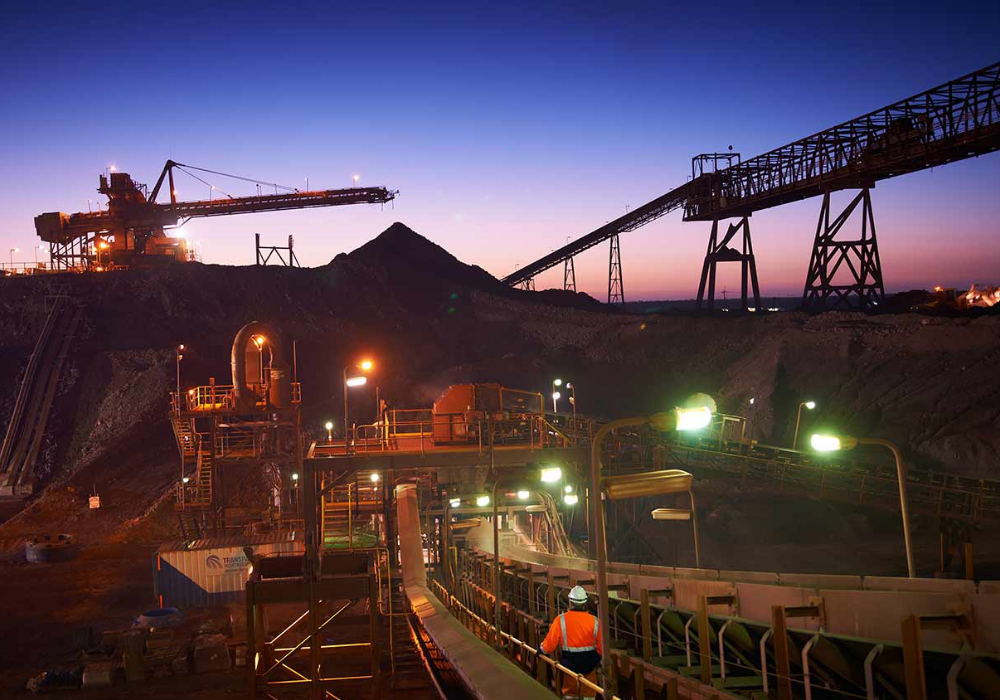BHP said there will be a key focus around renewable electricity, low or zero-carbon material movement and reducing hard-to-abate emissions

BHP was founded in 1885 and is one of the world’s top producers of major commodities, including iron ore, metallurgical coal and copper (Credit: BHP Group)
BHP has confirmed it will cut its greenhouse gas emissions by “at least” 30% by 2030.
The world’s biggest miner made the announcement in its climate change briefing today (10 September) as the pressure ramps up on fossil fuel companies to operate in a more sustainable, environmentally-friendly manner.
Alongside reducing emissions, the Anglo-Australian firm said its climate change approach focuses on investing in low-emissions technologies, promoting product stewardship, managing climate-related risk and opportunity, and partnering with others to enhance the global policy and market response.
BHP ‘accelerating’ its climate actions
BHP’s CEO, Mike Henry, said he is pleased to show how the company is “accelerating” its actions and “helping others to do the same in addressing climate change”.
He added: “We see ourselves as accountable to take action. We recognise that our investors, our people and the communities and nations who host our operations or buy our products have increasing expectations of us — and are responsive to these.
“Our approach to climate change is defined by a number of key requirements. Our actions must be of substance. They must be real, tangible actions to drive emissions down.
“We must focus on what we can control inside our business, and work with others to help them reduce emissions from the things that they control.
“To create long-term value and returns over generations, we must continue to generate value and returns within the strong portfolio we have today, while shaping our portfolio over time to benefit from the megatrends playing out in the world including decarbonisation and electrification.”
How BHP will reach its 2030 greenhouse gas emissions target
BHP said that to reach its 2030 emissions reduction target of “at least” 30%, which will be from its adjusted 2020 levels, there will be a key focus around renewable electricity, low- or zero-carbon material movement.
It is also looking to reduce hard-to-abate emissions — including fugitive methane from coal mining and petroleum production.
The Melbourne-headquartered firm’s first priority will be around decarbonising its electricity supply, which will facilitate “electrification” and “diesel displacement” at its mining operations.

Alongside reducing emissions, the miner also intends to ramp up its climate efforts by ensuring its Scope 3 actions contribute to decarbonisation in the value chain, strengthening the linking of executive pay to the delivery of BHP’s climate plan, and providing insight into the performance of its portfolio in a transition to a 1.5C scenario.
The group claims it has been “active in addressing climate risks for more than two decades” and reiterated its support of the 2015 Paris Agreement, which aims to limit global warming to “well below” 2C above pre-industrial levels, with 1.5C being the ideal scenario.
Henry said the company’s portfolio is “well-positioned” to support the transition to a lower-carbon world aligned with the Paris Agreement.
“Our commodities are essential for global economic growth and the world’s ability to transition to and thrive in a low-carbon future,” he added.
“Climate change action makes good economic sense for BHP and enables us to create further value.”
BHP’s commitments to climate change action
As part of its climate efforts, BHP has already established its long-term goal of achieving net-zero operational Scope 1 and 2 emissions by 2050, as well as its short-term target of maintaining operational emissions at or below 2017 levels by 2022, with the use of carbon offsets.
In the past year, the miner said it has made “good progress”, after confirming the Escondida and Spence copper mines in Chile will move to 100% renewable energy by the mid-2020s.
The latest emissions commitment follows on from the firm’s announcement last week that it will halve electricity emissions from its coal mines in Queensland, Australia, by 2025.
BHP said the move will effectively displace an estimated 1.7 million tonnes of CO2 between 2021 and 2025 — equivalent to the annual emissions of about 400,000 combustion engine cars.
